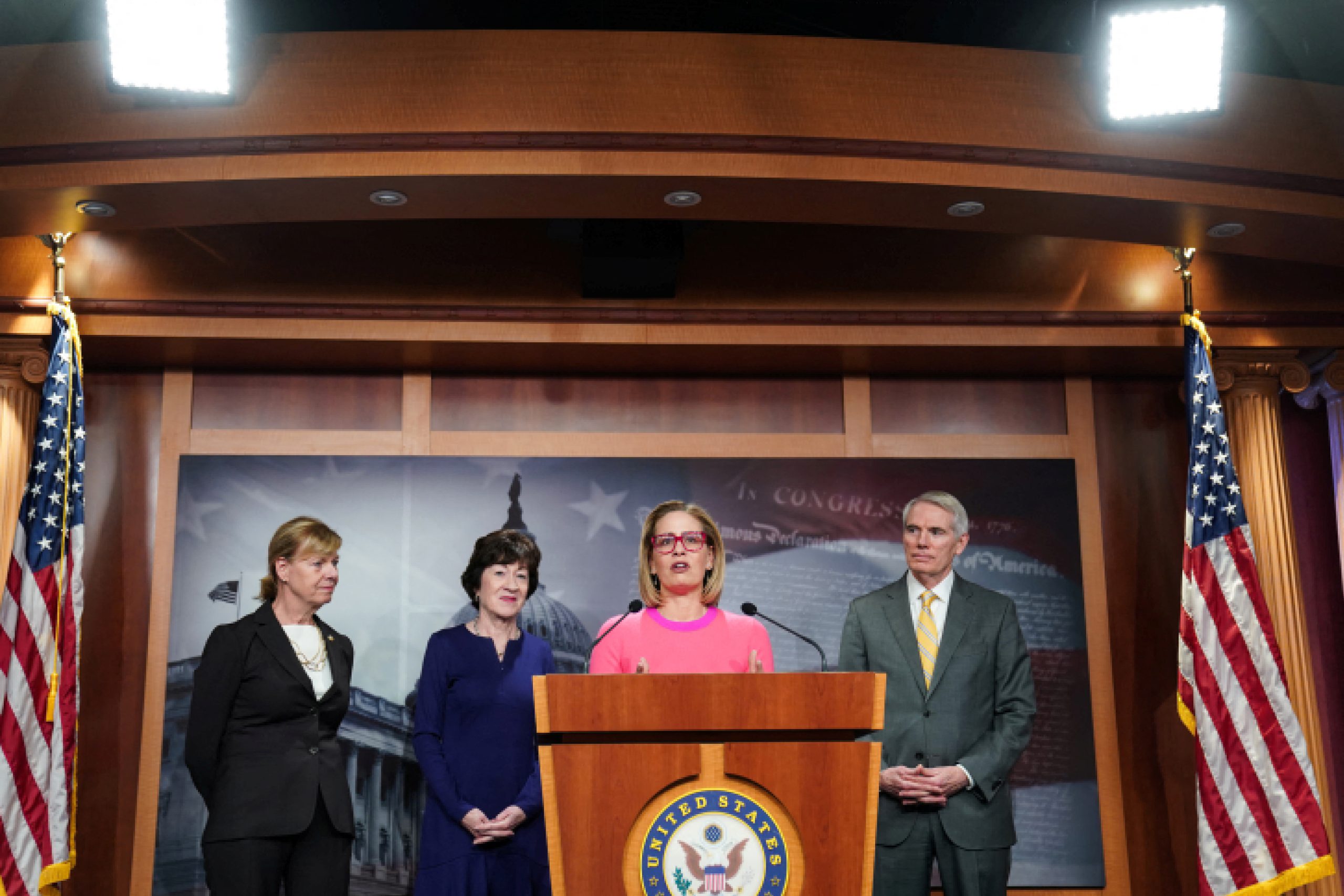
Chris Lange, FISM News
[elfsight_social_share_buttons id=”1″]
The Senate passed bipartisan legislation Tuesday to enshrine same-sex and interracial marriages into federal law. The measure was approved 61 to 36, with support from 12 Republicans who crossed party lines to vote with all Democrats.
Senate Majority Leader Chuck Schumer (D-Calif.) said the legislation was “a long time coming” and an important milestone in America’s “march towards greater equality.”
While the bill does not force any states to legalize gay marriage it does force states to legally recognize gay marriages that are performed in other states. Conservative lawmakers pushed for amendments that would have given further protections to religious organizations but those amendments were rejected, which critics say provides loopholes that liberals will be able to exploit to force business owners, individuals, and even churches to be penalized for upholding the biblical definition of marriage.
President Biden lauded the bipartisan vote in a statement, saying that it showed “that Republicans and Democrats together support the essential right of LGBTQI+ and interracial couples to marry,” adding that he will sign the bill “promptly and proudly” if it is passed by the House, which appears likely. House Democrats plan to fast-track a final vote while the party still holds a majority.
The Republicans who voted with Democrats to pass the legislation include Roy Blunt (R-Mo.), Richard Burr (R-N.C.), Shelley Moore Capito (R-W.Va.), Susan Collins (R-Maine), Joni Ernst (R-Iowa), Cynthia Lummis (R-Wyo.), Lisa Murkowski (R-Alaska), Rob Portman (R-Ohio), Dan Sullivan (R-Alaska), Mitt Romney (R-Utah), Thom Tillis (R-N.C.), and Todd Young (R-Ind.).
Collins praised her fellow Republicans who supported the measure.
“I know it has not been easy, but they have done the right thing,” she said.
Senate rejects religious protection amendments
The “Respect for Marriage Act” states that “nothing in this Act, or any amendment made by this Act, shall be construed to diminish or abrogate a religious liberty or conscience protection otherwise available to an individual or organization under the Constitution of the United States or Federal law.”
The bill identifies “churches, mosques, synagogues, temples, nondenominational ministries, interdenominational and ecumenical organizations, mission organizations, faith-based social agencies, religious educational institutions, and nonprofit entities whose principal purpose is the study, practice, or advancement of religion, and any employee of such an organization” as exempt from any requirement to perform same-sex marriages or services related to such marriages.
Critics, however, say the language doesn’t go far enough in that it fails to provide the same protections to individuals outside of the named faith-based industries, including Christian business owners.
Ahead of the final vote, the Senate rejected three amendments to address these concerns proposed by Sens. James Lankford (R-Okla.), Marco Rubio (R-Fla.), and Mike Lee (R-Utah).
The Lankford Amendment would have protected religious nonprofits that support traditional marriage from retaliatory action by the government to alter or remove their tax-exempt status. It failed to pass in a 52-45 vote, with Sens. Susan Collins (R-Maine), Lisa Murkowski (R-Alaska), and Rob Portman (R-Ohio) joining all Democrats in opposition.
The Rubio Amendment sought to remove a section of the bill that gives individuals the right to bring legal action against anyone who refuses to recognize same-sex marriage. This was also rejected in a 52-45 vote, with Collins, Murkowski, and Portman breaking with their party again to oppose it.
The Lee Amendment would have clarified that “the Federal Government shall not take any discriminatory action against a person, wholly or partially on the basis that that person speaks, or acts, in accordance with a sincerely held belief, or moral conviction, that marriage is or should be recognized as a union of … one man and one woman.” The proposal was shot down in a 49-48 vote, with Collins joining Democrats in voting “no” and Sen. Joe Manchin, (D-W.Va.), crossing party lines to support it.
“This is a discouraging development in our country’s storied history of protecting the free exercise of religion,” said Senator Lee after the vote, but vowed to do everything he could to continue to uphold the religious freedom of Americans.
Liberty University’s Standing for Freedom Center implied that the direction of our country is in peril if religious liberty protection amendments are seen as “unacceptable.”
What does it say about our Congress & our country if including religious liberty protections in a bill that would otherwise force Americans to act against their religious convictions proves to be an unacceptable addition to the (Dis)respect for Marriage Act?
— Standing for Freedom Center (@freedomcenterlu) November 29, 2022
The Alliance Defending Freedom Senior Vice President of Strategic Initiatives Ryan Bangert stated that the bill is a “direct attack on the First Amendment:”
This dangerously cynical and completely unnecessary bill is a direct attack on the First Amendment. It does nothing to change the legal status of same-sex marriage anywhere. But it undermines religious freedom everywhere and exposes Americans throughout the country to predatory lawsuits by activists seeking to use the threat of litigation to silence debate and exclude people of faith from the public square. Today, the Senate has chosen to disregard legitimate concerns about the undeniable harms of this bill.
House Majority Leader Steny Hoyer (D-Md.) told reporters the chamber could bring the legislation to the floor for a vote as early as next Tuesday.
This article was partially informed by The Associated Press, The Christian Post, and Axios reports.
